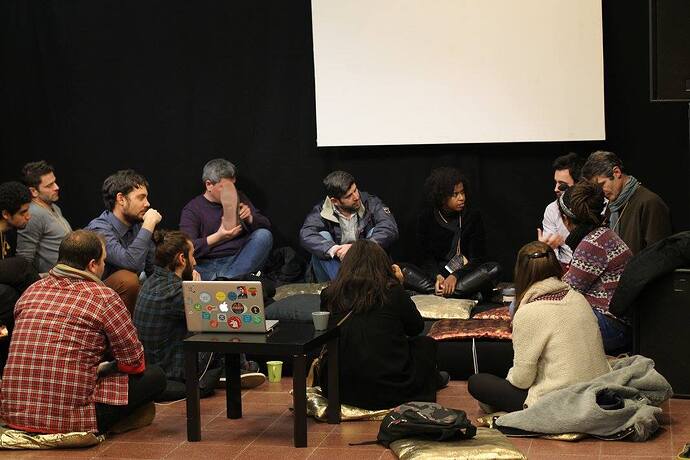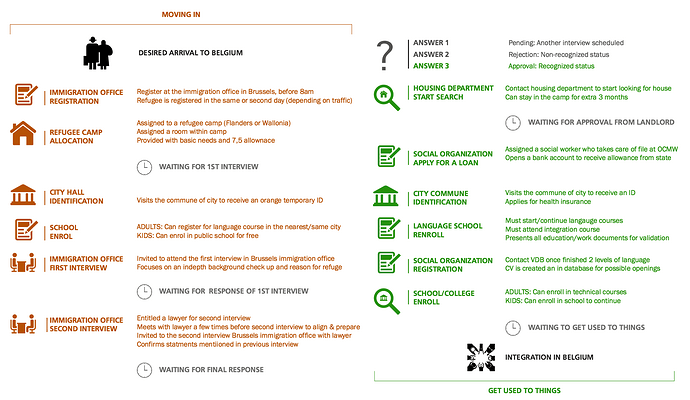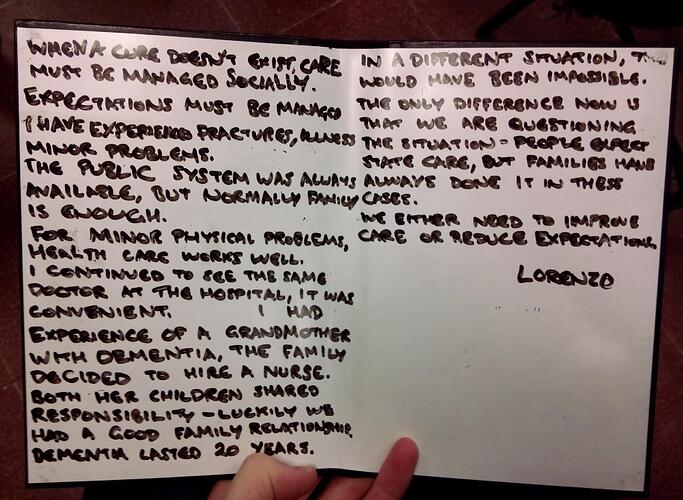"Welfare is the safety net of society. Its failures are everywhere around us, but often are vested with narrative values that transcend its original socio-cultural substrate. A suicide, somebody giving up on a career to become a family care giver, a student drop out, a veteran affected by PTSD turning tramp, and so many others, are all ultimately failures of welfare.
However, there is growing feeling of distrust towards this mechanism: after all also a Country’s coverage of maintenance costs for a royal palace is welfare, and with moralism infecting the very root of capital culture, welfare is cloaked in the guilt of dispersing resources on people who did not try hard enough, whose “personal resilience” were not worthy of surviving the healthy natural selection of the market.
Arguably, welfare failure is often a larger failure of society, of its culture of cohesion and mutuality. Should we single out specific instances of a failing system? Should we fight the cultural drift that segregates a welfare system? Or should we redesign the safety nets to meet the end goals in ways that are acceptable within the new understanding of society that is spreading?" - anonymous contributor
How to make sense of Care together?
Both at the personal and collective level, care is such a sensitive topic that touches our lives where we are most vulnerable. The immediate challenge for OpenCare is finding appropriate and ethically sound frames of enquiry. Ezio Manzini’s reflections on the shared vision are a good starting point…
Another important question is how to make it fair and rewarding for everyone who contributes without breaking any of the rules in the 50 page (yes, really) grant agreement document, on top of the rules of each consortium partner organisations ![]()
Perhaps a first step to open the project for collaboration is by thinking out loud about what we learned with respect to care during #lote5…
"You just wait"
During the session on Collaborative Inclusion, Yara Al Adib shared her experiences from the asylum applications process:
Why not turn the pointless waste of time during waiting phases into a period of newcomers’ physical/psychological recovery and social inclusion?
"We either need to improve care, or reduce expectations"
Dementia is on the rise. It is estimated that by 2015 the number of people with dementia would fill up a country the size of both Germany and France. Those who have experiences of caring for older family members know how demanding it can be on both the care givers as well as the person being cared for. Negotiating changing roles and needs (emotional and practical) of family members as parents slip into dementia requires us to better understand and support different needs, capacities, and constraints.
Caring for those who don't
From a conversation that took place after LOTE5 someone mentioned “learned helplessness” and how to cope with this as a caregiver. We were sharing our very personal experiences of dealing with suicide. How to communicate and negotiate around the different needs, capacities, permission/willingness to get involved and constraints of both caregivers and care recipients. In part because the boundaries between the roles are fluid, especially in trying to deal with psycho-social distress .
Coping mechanisms: Networked care
Someone mentioned one coping mechanism being to require the person asking for help to spread the burden by reaching out to more people in their caring network. I mention it because I think this is something we could look into: how a network can help the individual nodes both identify signs of trouble, collude to preventing them from happening, as well as identify and respond to calls for help. Having this option of spreading the burden of care over more people might be one way to nudge more people to engage in caring activities. This is certainly the case for me: the fear of getting entangled in relationships that I cannot get out of is a big obstacle.
This is where I am right now…you?


